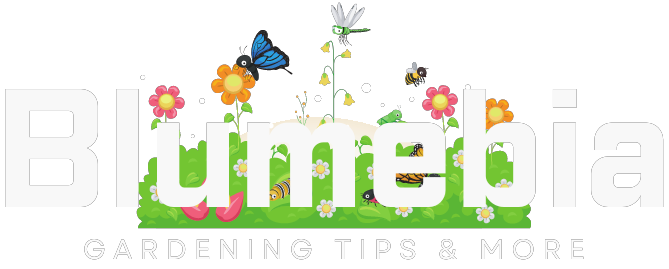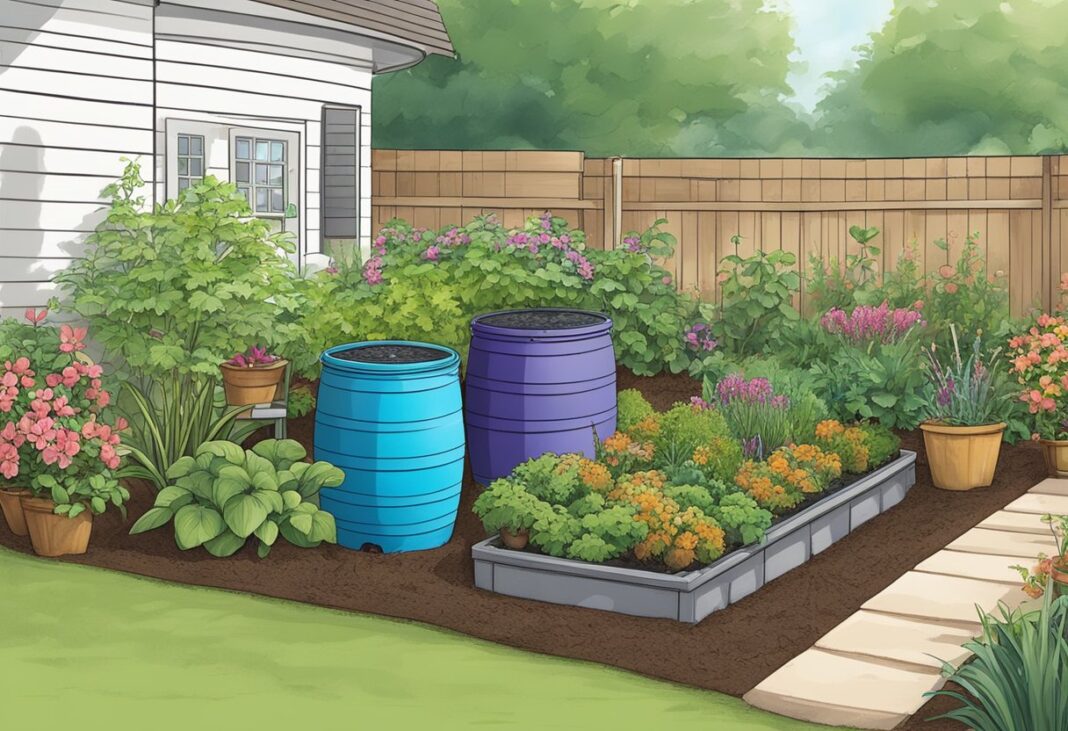If you’re an organic gardener, you know that watering is one of the most important aspects of maintaining a thriving garden. However, it can also be one of the most challenging, especially if you’re trying to conserve water. Fortunately, there are several organic watering practices you can implement to reduce water usage while still keeping your plants healthy and productive.
One of the most effective ways to conserve water in your organic garden is to water deeply but infrequently. This encourages plants to develop strong root systems, which helps them access moisture deeper underground. Additionally, it reduces evaporation and allows you to water less frequently, which saves both time and water.
Another way to conserve water is to use mulch. Applying a layer of organic mulch around your plants helps retain moisture in the soil, which means you won’t have to water as often. Plus, it provides other benefits like suppressing weeds and regulating soil temperature.
Fundamentals of Organic Watering
Understanding Soil Moisture
One of the most important aspects of organic watering is understanding soil moisture. Soil moisture is the amount of water held in the soil after excess water has drained away. It is important to maintain adequate soil moisture levels to ensure healthy plant growth. Over-watering can lead to root rot and other plant diseases, while under-watering can cause stunted growth and reduced productivity.
To determine soil moisture levels, you can use a soil moisture meter or simply dig a small hole in the soil and feel the moisture content with your fingers. Different plants have different moisture requirements, so it is important to research the specific needs of each plant in your garden.
The Role of Mulching
Mulching is an effective way to conserve water in organic gardening. Mulch is a layer of organic material such as leaves, straw, or wood chips that is spread over the soil around plants. Mulch helps to reduce evaporation from the soil surface, which can save water and keep the soil moist for longer periods of time.
Mulch also helps to regulate soil temperature, suppress weed growth, and improve soil structure. When choosing a mulching material, it is important to consider the specific needs of your plants and the climate in your area.
Choosing the Right Plants
Choosing the right plants for your garden is another important aspect of organic watering. Some plants require more water than others, so it is important to choose plants that are well-suited to your climate and soil conditions. Native plants and drought-tolerant varieties are often good choices for organic gardens, as they require less water and are better adapted to local conditions.
In addition to choosing the right plants, it is important to group plants with similar water requirements together. This can help to ensure that all plants in your garden receive the appropriate amount of water without wasting water on plants that do not need it.
By understanding soil moisture, using mulching techniques, and choosing the right plants for your garden, you can conserve water and promote healthy plant growth in your organic garden.
Water Conservation Techniques
Conserving water is an essential part of organic gardening. In this section, we’ll discuss three effective water conservation techniques: Rainwater Harvesting, Drip Irrigation Systems, and Scheduled Watering.
Rainwater Harvesting
Rainwater harvesting is the process of collecting and storing rainwater for later use. It’s a simple and effective way to conserve water in your garden. By collecting rainwater, you can reduce your reliance on municipal water supplies and lower your water bill.
To harvest rainwater, you’ll need a rain barrel or a similar container. Place the container under a downspout or in an area where rainwater naturally collects. When it rains, the water will flow into the container, where you can collect it for later use.
Drip Irrigation Systems
Drip irrigation systems are an efficient way to water your plants. Unlike traditional sprinkler systems, which can waste a lot of water through evaporation and runoff, drip irrigation systems deliver water directly to the roots of your plants.
Drip irrigation systems work by using a network of tubes or hoses with small holes or emitters that allow water to drip slowly onto the soil. This method of watering reduces water waste and helps your plants grow stronger and healthier.
Scheduled Watering
Scheduled watering is another effective water conservation technique. By watering your plants on a schedule, you can ensure that they receive the right amount of water without wasting any.
To schedule your watering, you’ll need to consider factors like the type of plant, the weather, and the soil type. You can use a timer or a smart watering system to automate your watering schedule and ensure that your plants always receive the right amount of water.
By implementing these water conservation techniques in your organic garden, you can reduce your water usage, save money on your water bill, and help protect the environment.
Efficient Watering Methods
Deep Watering
When watering your organic garden, it’s important to water deeply and infrequently. This means watering the soil to a depth of at least 6 inches. Deep watering encourages the roots to grow deeper, making the plants more resilient to drought conditions. It’s also important to avoid watering too frequently, as this can lead to shallow root growth and make the plants more susceptible to drought stress.
Soaker Hoses vs. Sprinklers
Soaker hoses and sprinklers are two common methods for watering organic gardens. Soaker hoses deliver water directly to the soil, minimizing evaporation and waste. They are also easy to install and can be left in place for the entire growing season. Sprinklers, on the other hand, can be less efficient, as they can lead to water loss through evaporation and runoff. However, they can be useful for watering larger areas or for cooling plants during hot weather.
Hand Watering Best Practices
Hand watering is a great way to ensure that your plants receive the right amount of water. To make the most of this method, water your plants in the early morning or late afternoon, when evaporation is at its lowest. Use a watering can or hose with a gentle spray nozzle to avoid damaging the plants. It’s also important to water the soil directly, rather than the leaves, as this can reduce the risk of fungal diseases. Finally, be sure to water deeply and infrequently, as described above.
Frequently Asked Questions
What are effective water conservation techniques for organic vegetable gardens?
Water conservation is a crucial aspect of organic gardening. Some effective water conservation techniques include capturing and storing rainwater, using drip hoses, and mulching. Mulching helps to retain moisture in the soil, while drip hoses deliver water directly to the plant’s base, reducing evaporation and runoff.
Which irrigation methods lead to the most water savings in organic agriculture?
Drip irrigation is one of the most effective irrigation methods for water conservation in organic agriculture. It delivers water directly to the plant’s base, reducing evaporation and runoff. This method can save up to 50% of water compared to conventional irrigation methods.
How does mulching contribute to water conservation in gardening?
Mulching is an effective method of water conservation in gardening. It helps to retain moisture in the soil, reducing the need for frequent watering. Mulch also helps to suppress weed growth, which can compete with plants for water.
Can you list some personal habits that help save water in organic gardening?
There are several personal habits that can help save water in organic gardening. These include watering plants early in the morning or late in the evening when temperatures are cooler, using a watering can instead of a hose, and avoiding overwatering. It’s also important to check for leaks and repair them promptly.
What are the benefits of watering plants early in the morning for water conservation?
Watering plants early in the morning is beneficial for water conservation because cooler temperatures reduce evaporation. This means that more water reaches the plant’s roots, reducing the need for frequent watering. It also helps to prevent fungal diseases that can occur when plants are watered in the evening.
What best practices can organic farmers adopt to enhance water use efficiency?
Organic farmers can adopt several best practices to enhance water use efficiency. These include using drought-tolerant crops, planting cover crops to retain moisture in the soil, and using compost to improve soil structure and water-holding capacity. It’s also important to monitor soil moisture levels regularly and adjust watering accordingly.



